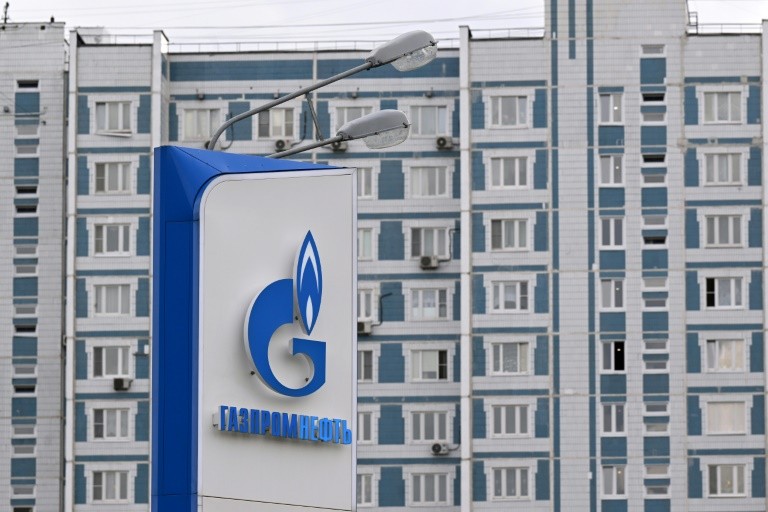
The United States and Britain on Friday announced sanctions against Russia's energy sector, including oil giant Gazprom Neft, just days before outgoing President Joe Biden leaves office.
The US Treasury Department said it was designating more than 180 ships as well as Russian oil majors Gazprom Neft and Surgutneftegas, fulfilling "the G7 commitment to reduce Russian revenues from energy."
At the same time, the UK government announced sanctions against the two companies, saying their profits were "lining (Russian President Vladimir) Putin's war chest and facilitating the war" in Ukraine.
"Taking on Russian oil companies will drain Russia's war chest -- and every ruble we take from Putin's hands helps save Ukrainian lives," UK Foreign Secretary David Lammy said in a statement.
Gazprom Neft slammed the sanctions as "baseless" and "illegitimate," Russian state news agencies reported.
"Gazprom Neft considers the decision to include its assets on the sanctions list as baseless, illegitimate and contrary to the principles of free competition," Russian state news agencies quoted a company representative as saying.
Oil prices rose on the news, with a barrel of Brent North Sea crude oil for delivery in March up 3.6 percent at $79.68 at around 4:45 pm in Washington (2145 GMT).
Even before the sanctions were officially announced, rumors of fresh designations sparked condemnation from Kremlin spokesman Dmitry Peskov, who told reporters that the Biden administration was trying to leave incoming US President Donald Trump "as heavy a legacy as possible."
In total, the United States announced sanctions against almost 400 people and entities.
These include 183 oil-carrying vessels, along with Russian oil traders and oilfield providers, the two Russian oil majors, and more than two dozen of their subsidiaries, according to the Treasury Department.
Serbian President Aleksandar Vucic announced plans to speak with Putin about the sanctions, which also affect Petroleum Industry of Serbia (NIS), majority-owned by Russia's Gazprom Neft and its parent company, Gazprom.
NIS is the only supplier of gas to Serbia and the majority owner of both gas pipelines that transport gas from Russia to households and industries in the country.
"Today, the United States imposed the most significant sanctions yet on Russia's energy sector, by far the largest source of revenue for Putin's war," Daleep Singh, the Biden administration's deputy national security advisor for international economics, said in a statement.
Senior administration officials told reporters that the measures were designed to give the United States additional leverage to help broker a "just peace" between Ukraine and Russia.
Ukrainian President Volodymyr Zelensky on Friday praised the United States for introducing the sanctions.
"These measures deliver a significant blow to the financial foundation of Russia's war machine by disrupting its entire supply chain," he wrote in a post on the social media platform X.
Friday's announcement comes just 10 days before Biden is due to step down, and puts President-elect Trump in something of an awkward position given his stated desire to end the Ukraine war on day one of his presidency.
Asked about the timing of the decision, National Security Council spokesperson John Kirby told reporters that oil markets were now in a "fundamentally" better place than they had been in the aftermath of Russia's invasion of Ukraine in 2022, and that the US economy was also faring better.
"We believe the moment was ripe right now to adjust our strategy," he said.
The US State Department announced it was also taking action against Russia's energy sector, "sanctioning nearly 80 entities and individuals, including those engaged in the active production and export of liquefied natural gas (LNG) from Russia."
Among those it designated were people involved in Russia's metals and mining sector, "and senior officials of State Atomic Energy Corporation Rosatom."
The move sparked condemnation from Rosatom, who called it "unreasonable and unlawful" in nature.
"The sanctions are perceived as an element of unfair competition on the part of unfriendly states," Rosatom said in a statement published by several Russian news agencies.








